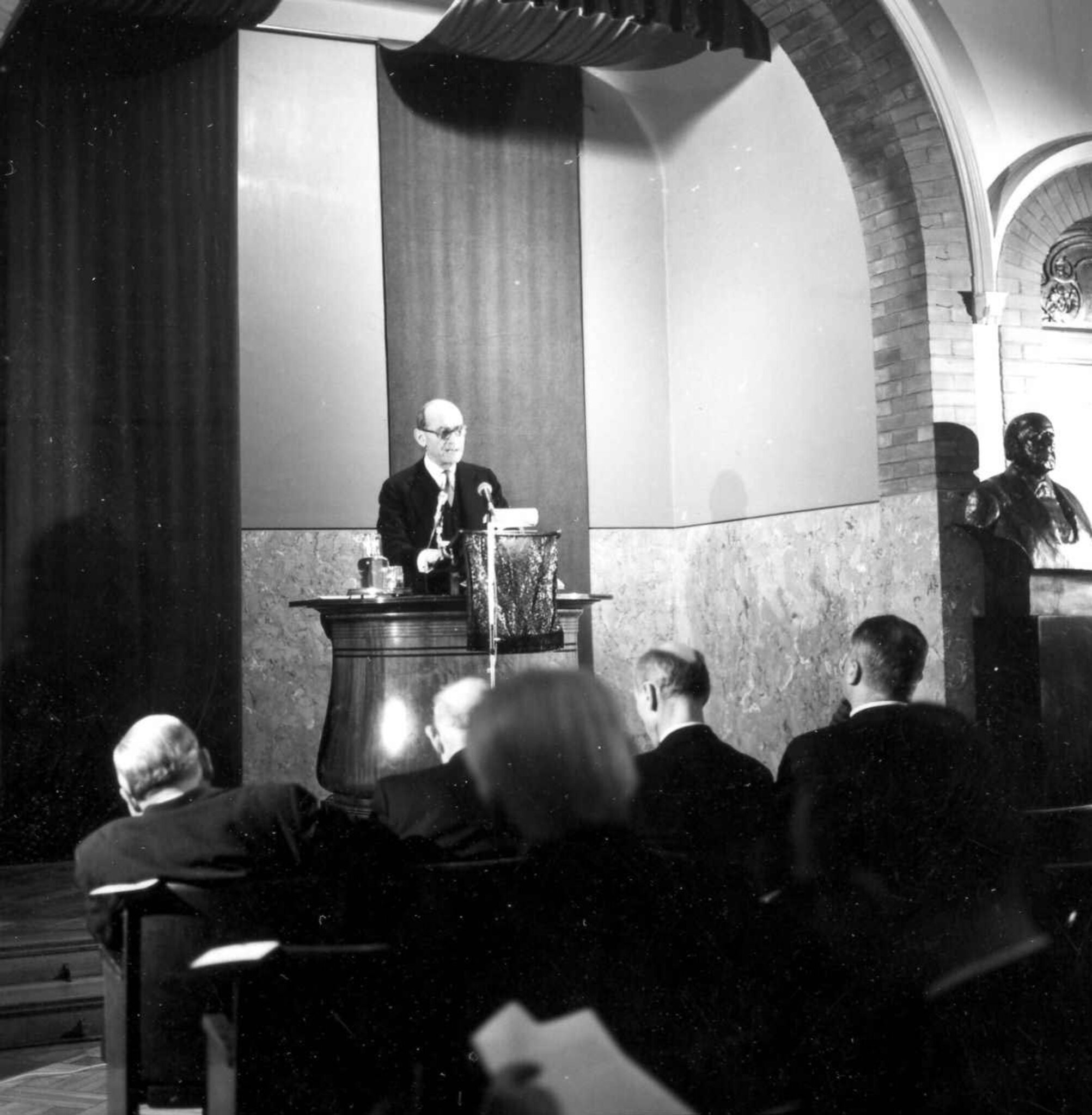International Labour Organization
Speed read
The International Labour Organization (ILO) was awarded the Nobel Peace Prize for the creation of international conventions improving the working conditions and social rights of employees in every country.

Full name: International Labour Organization
Native name: International Labour Organization
Founded: 1919, Geneva, Switzerland
Date awarded: 20 October 1969
Social justice promotes peace
Fifty years after its creation at the Paris Peace Conference of 1919, the International Labour Organization (ILO) was awarded the Nobel Peace Prize. As a specialised agency of the UN, the ILO drafts regulations that can ensure better working conditions and social rights for wage earners. According to ILO precepts, reforms in these areas will strengthen the cause of peace by reducing poverty. By 1969, the organisation had adopted 128 conventions drafted by representatives of national authorities, employers and workers from the member states. The 1969 Nobel Peace Prize once again indicated the Norwegian Nobel Committee’s support for the UN and human rights. It also recognised the ILO’s efforts to implement development cooperation projects in developing countries.
"Beneath the foundation stone of the ILO's main office in Geneva lies a document on which is written: ‘Si vis pacem, cole justitiam.’ If you desire peace, cultivate justice. There are few organizations that have succeeded to the extent that the ILO has, in translating into action the fundamental moral idea on which it is based."
Aase Lionæs, Presentation Speech, 10 December 1969.
ILO’s Indigenous and Tribal Peoples Convention
In 1989 the ILO adopted the Indigenous and Tribal Peoples Convention. It establishes that all indigenous and tribal peoples have a right to maintain and develop their cultural identities and that they have a right to be consulted when governments adopt resolutions that could influence their way of life. Norway was the first country to sign the convention in 1990. The Sámi minority, which is fighting for land and water rights in northern Norway, has invoked the provisions of the convention when presenting its demands to Norwegian authorities.
| Indigenous peoples A population considered to be the descendants of the first people to live on a territory. These groups share certain historical and cultural commonalities, and are minorities within modern states. The UN has adopted several resolutions on the rights of indigenous peoples. |
Ban on child labour – a main goal of the ILO
According to ILO statistics from 2004, 250 million children between the ages of five and fourteen were performing manual labour. Half of these children worked under hazardous conditions, and most of them received little or no education. By publicising breaches to the conventions on child labour, the ILO is able to exert pressure on governments that do not fulfil their obligations under international law.

"The ILO in short offered the world an alternative to social strife; it provided it with the procedures and techniques of bargaining and negotiation to replace violent conflict as a means of securing more human and dignified conditions of work."
David A. Morse, Nobel Prize lecture, 11 December 1969.
Learn more
Read the history of the International Labour Organization.
Disclaimer: Every effort has been made by the publisher to credit organisations and individuals with regard to the supply of photographs. Please notify the publishers regarding corrections.
Nobel Prizes and laureates
Six prizes were awarded for achievements that have conferred the greatest benefit to humankind. The 14 laureates' work and discoveries range from quantum tunnelling to promoting democratic rights.
See them all presented here.
